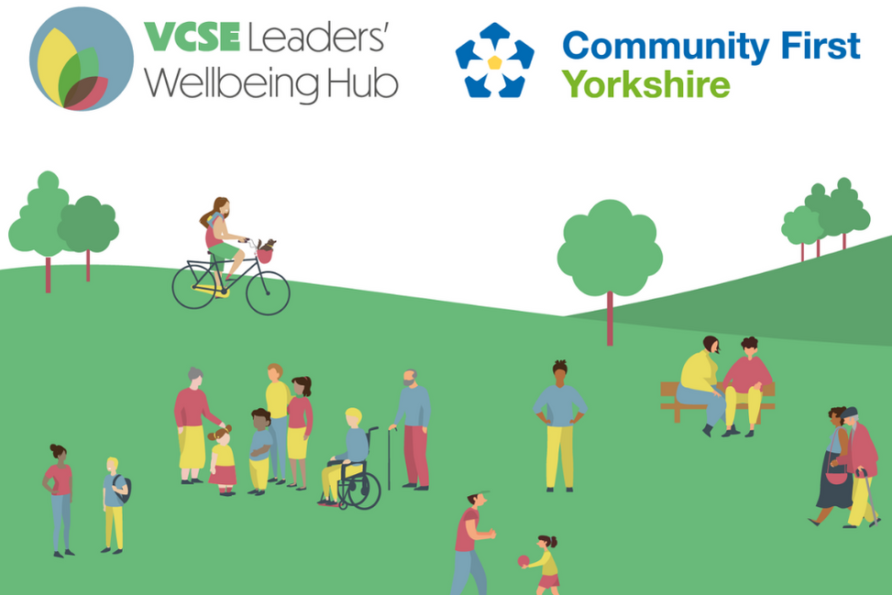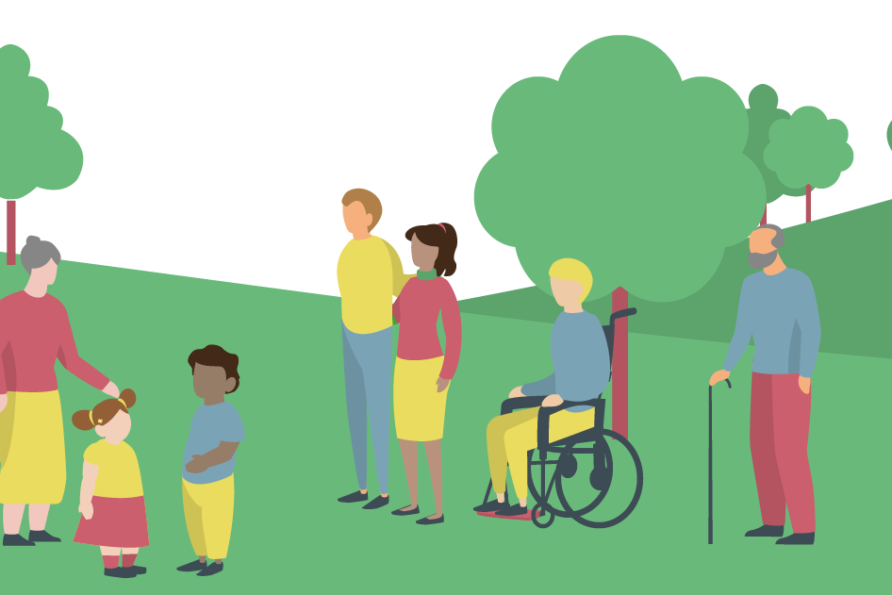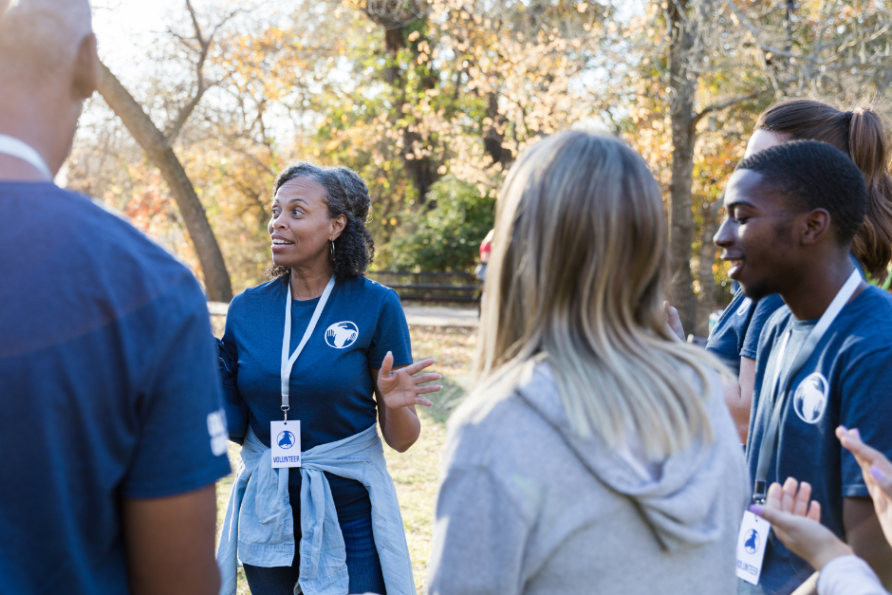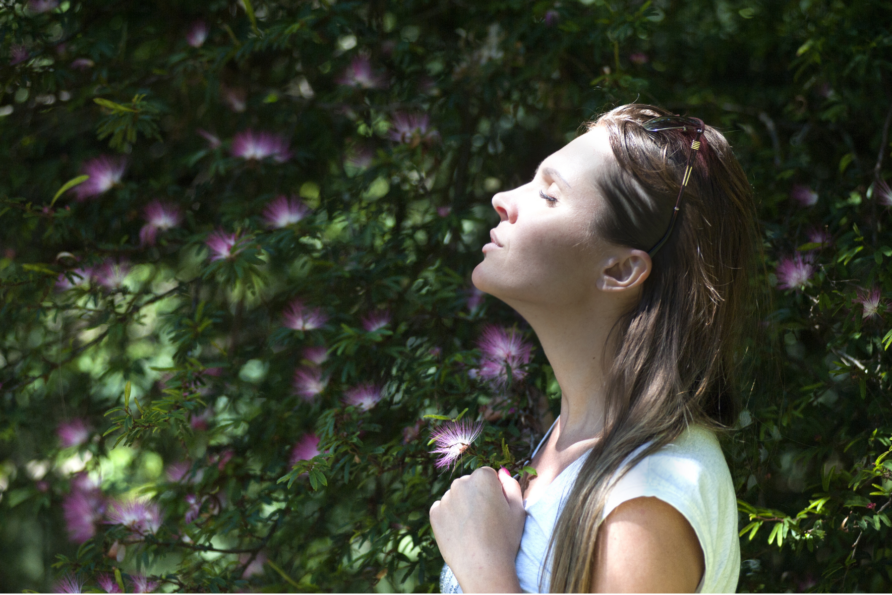Read what Mentalhealth.org have to say about what wellbeing is and how it can measured.
It’s time to make time for wellbeing
Things like the pandemic have had an effect on all aspects of our lives and put prolonged pressure on our levels of resilience, leaving many of us feeling tired and anxious.
This toolkit aims to provide a guide for you, wherever you are on your ‘wellbeing journey’. We’ve suggested resources that you might find useful but if there’s anything that you think is missing, please do get in touch with victoria.russell@communityfirstyorkshire.org.uk
Please note, you may find the following subject and resources difficult to read. If you are in crisis now, there are organisations that can help. You can call the Samaritans anytime, day or night, on 116 123.
Understanding wellbeing
Wellbeing, put simply, is about how we are doing. It’s all about how we feel in ourselves, how we experience life and how we connect with others. It includes both our physical and mental health and applies to individuals, as well as communities and organisations.
Wellbeing is multidimensional and involves our lifestyle choices, our emotional health, our sense of belonging, having a purpose in life, expanding our skills and knowledge, and the ability to meet our basic needs.
-
The Mental Health Continuum
-
Wellbeing and mental health are fluid, and we can move between different states of wellbeing depending on what is happening in our lives day to day. Take a look at the Mental Health Continuum for an idea of the difference between thriving and surviving.
-
Wellbeing data
-
If data is your thing, you can explore the Indicators of change, used by the Office of National Statistics to measure the level of personal satisfaction for people across the UK.
-
Five ways to wellbeing
-
If you’re looking for a framework to base your wellbeing on, try the Five ways to wellbeing, which has been summarised by Mind. If you want to read the full report from the New Economics Foundation, you can also see how to integrate the framework into your organisation.
Stories
Wellbeing is something that affects each and every one of us, but when we are struggling, it’s easy to feel alone.
Hear and read some stories we have gathered below on why it is important to look after to your wellbeing, read how other people look after themselves and their top tips to feel well in today’s hectic world.
We want to open up the conversation around wellbeing, so it would be great to hear from you around the changes you are going to make to look after your own wellbeing, that you feel comfortable to share. Use #VCSEWellbeing.
So whilst you’re enjoying a cuppa, take 5 minutes to have a read or a listen to some of the stories below;
-
Make wellbeing an organisational priority
-
Here is a blog from our Chief Executive, Jane Colthup, on how Community First Yorkshire has made wellbeing a priority for colleagues.
-
Where the Mind Grows
-
Watch this vlog by JK McQuinn, Nature-Based Well-being Coach/Facilitator from Where The Mind Grows, talking about why it’s important to look after your wellbeing.
-
Men's wellbeing
-
Societal expectations and traditional gender roles can be a large factor in our wellbeing. Our Wellbeing Champion, Michael Fletcher, explains his approach to looking after his own wellbeing in this blog.
-
Podcast recommendations
-
If you’re looking to update your Spotify playlist, check out Dr Rangan Chatterjee and his Feel Better Live More series, which covers a wide range of topics on health and wellbeing.
-
The importance of having a supportive workplace
-
It can be really hard to open up to others about our mental wellbeing. Read Kim’s story, written for Mind, on how talking to others and having a supportive workplace were key to her mental health.
Taking action
Small changes can have a big impact, so whether you are looking for actions to help your own wellbeing, to improve the wellbeing of others in your community or to make changes in your organisation you can find resources here that can help. We believe that making changes for yourself will inspire others, so don’t be afraid to be the person to start the conversation around wellbeing – you never know the connections you might make, or the wider changes that might occur as a result!
-
Self-care isn’t selfish
-
It’s vital for us to look after ourselves in order for us to look after others. Here’s some resources you may find useful in order to improve your wellbeing.
-
Take a walk
-
The best place to start is getting out there in the fresh air and we are lucky enough to live in God’s Own County. If you need inspiration of where to explore first, try 10 of the best Yorkshire walks (although all a matter of opinion of course!).
-
Embrace nature
-
Embracing nature and all it has to offer is a great way to help our wellbeing. Don’t believe us? Take a look at what the Woodland Trust has to say about Why walking in the woods is good for you.
Whilst on your daily walk, have a listen to The Wilderness Mind, a series of podcasts from Where The Mind Grows, to explore the benefits of connecting with nature.
-
Sleep
-
A good night’s sleep is one of the main ways to improve our wellbeing. If you are struggling with sleep, try Putting the day to rest, as a way to wind down after a busy day. You can also find information from the NHS here, on understanding sleep and how to combat having trouble sleeping.
-
Get support
-
If you are struggling with a particular issue, Cumbria, Northumberland, Tyne and Wear NHS Foundation Trust have developed a series of self-help leaflets, on topics ranging from bereavement to post traumatic stress.
-
Try new things
-
Finding new ways to be creative can be a really good way to help unwind. Here are some mindful crafting activities you could give a go if you’re looking to try something new!
Alternatively, if you’re looking to connect with other people too, why not check out Rural Arts in Thirsk who offer a range of creative workshops suitable for all abilities.
-
Find connections
-
Having a social support network and strong, healthy relationships with others can help us live longer, happier lives. Take a look at this article on friendship, to see why connecting with others is a key part of wellbeing.
-
Mindfulness
-
Being present in the moment, and paying attention to your surroundings is a great way to improve your wellbeing. Mindfulness sometimes takes practice, but you can watch this short video to help you take a moment.
-
Change unhelpful habits
-
Sometimes we need to ease the load, and stop doing things or do less of those unhelpful habits. Take a look at this values activity from Where The Mind Grows, which will help you develop a framework for yourself and others.
-
Wellbeing techniques
-
It’s good to have some tips and techniques in our back pockets to help when we are struggling with our wellbeing. Take a look at the Red Cross Self-Kindness toolkit for some useful exercises on building resilience and increasing your own sense of wellbeing.
-
Borrow a ‘Bag of Wellbeing’
-
If you live in North Yorkshire, why not head down to your local library and borrow a ‘Bag of Wellbeing’ – portable collections of items, books and activities aimed at enhancing mental wellbeing. They also have ‘Self Care Toolkits’ specifically aimed at young people to encourage them to think about self-care. It’s free to join, and you might other books that interest you too!
-
Having a caring, compassionate and connected community is vital to wellbeing
-
If you would like to see a change in your local area and come together with like-minded people to increase a sense of wellbeing in your community, take a look at these resources.
-
Co-op Community Wellbeing Index
-
Looking for an insight into what really matters to your community? Take a look at the Co-op Community Wellbeing Index and find the areas of priority for your local area.
-
Ideas to boost wellbeing in your community
-
The Community Wellbeing website from Tameside and Glossop Integrated Care NHS Foundation Trust has a range of inspiring ideas on boosting wellbeing in your community.
You can also complete their handy Wellbeing Plan to get you started!
-
The Network of Wellbeing
-
The Network of Wellbeing is a great source of information when it comes to helping your community with their wellbeing. Full of valuable resources, you can also carry on communicating through their wellbeing network.
-
The Loneliness Campaign
-
Loneliness can be a big factor in someone’s wellbeing, and affects more people than you might think (over 9 million of us in fact!). Have a read through our Loneliness Campaign resources, which include top tips for making connections and being present in your community.
-
Ideas for conversations with others
-
Want to open up the wellbeing conversation with others, but not sure what to say? Take a look at these Ideas for conversations with others from Where The Mind Grows.
-
Looking at how you encourage wellbeing as an organisation doesn’t just benefit employees
-
Increasing wellbeing at work and creating a positive working environment can lead to numerous other benefits, such as a more resilient workforce with less staff absence and increased commitment and productivity.
-
Wellbeing at Work guide
-
Harnessing the Power of Our Communities programme has delivered a Wellbeing At Work guide, which has been created to support the wellbeing of staff and volunteers in the sector and includes some helpful actions and resources to improve organisational wellbeing.
-
Resources for organisations
-
Mind have a whole range of free resources for organisations that want to deliver open and supportive workplaces for everyone.
-
Supporting volunteers in your organisation
-
Volunteers are at the heart of our sector, and play a crucial role in helping deliver community activities and services. It’s important we consider their wellbeing when looking at improving wellbeing across an organisation. Take a look at our information on managing the wellbeing of your volunteers.
-
Supporting Staff Mental Health in the Voluntary Sector toolkit
-
As a sector, we work tirelessly to bring about positive change, and as a result our wellbeing and that of our colleagues can slip down the list of priorities. Mental Health At Work have put together some ideas for our sector in their Supporting Staff Mental Health in the Voluntary Sector toolkit.
-
Tips on supporting yourself and colleagues
-
Many of us are still continuing to work from home, which can have an impact on our wellbeing. Here are some tips on supporting yourself and colleagues you may find helpful.
-
Unconscious biases to consider
-
Make tackling the tricky stuff a central part of your workplace wellbeing strategy, with this information from Jane McKay on the types of unconscious bias we need to consider.














